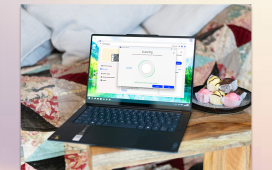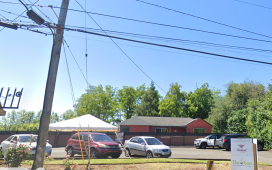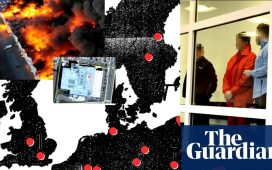Public safety technology giant Axon Enterprise announced plans Monday to acquire counter-drone technology leader Dedrone to advance the company’s development of drones as first responders (DFR).
The Dedrone acquisition follows two other Axon purchases in the last year: The first was Sky-Hero, which designs, develops and produces a Unified Indoor Tactical Recon System.
The second acquisition was Fusus, which offers an open and unified intelligence ecosystem that integrates and enhances public safety and investigations assets for law enforcement, first responders and private security personnel.
Axon executives believe robotic security applications through drones and related technologies will play a major role in the company’s mission, and acquiring Dedrone will remove some obstacles with first-responder applications, Axon Founder and CEO Rick Smith said during an earnings call Monday.
Smith believes drones as first responders are a “massive opportunity” that will drive faster response times and improve decision-making, giving law enforcement or security personnel “extra seconds and more information” before acting in critical situations.
DFR programs are designed to deploy drones to an emergency before human first responders, enhancing situational awareness to improve response strategies, optimizing the allocation of already limited resources and reducing the risk of harm to first responders and communities, Smith said. At the same time, he noted, drone tracking and countermeasures become equally, if not even more important.
DFR programs have been hindered, Smith said, due to FAA requirements mandating the presence of a human virtual observer in a direct line of sight of drones. This means operators must be positioned in relatively close proximity to the scene, usually on rooftops and operating primarily in clear daytime conditions,” Smith said.
“We believe Dedrone’s technology solves these limitations, allowing law enforcement to operate in low-visibility conditions and at times of day without the need to maintain a human observer with a line of sight.”
Smith noted that airborne threats pose major risks to targets like stadiums, infrastructure and major events. Despite potential privacy concerns, the public expects local government and public safety to protect life and property. So, he sees drones getting police eyes on incidents more quickly to help personnel make better resource decisions.
The Dedrone acquisition “could end up being an opportunity where it’s not only useful to our existing customers but also new customers, such as sports stadiums, infrastructure or the military,” Smith said. “We have a customer set that is new to us and this can bring our ecosystem to those customers as well.”
Axon President Josh Isner also notes that Dedrone has a “strong” international presence and the acquisition could help increase Axon’s international channel growth.
Axon CFO and COO Brittany Bagley added robotic security will be a pillar of the company’s business with a long-term growth trajectory, and Dedrone will be added to the company’s software and sensor product category.
Axon said it estimates Dedrone will add approximately $14 billion to Axon’s total addressable market (TAM) and, with the Sky-Hero and Fusus acquisitions combined with the Dedrone deal, the company’s TAM will increase by more than 50% over the last year, from $50 billion to $77 billion.
The acquisition of Dedrone is subject to closing conditions and is expected to close in the second half of 2024.
Axon stocks rose 2.8% Monday to $327.64 per share but fell 2.3% to $320 in late trading.









